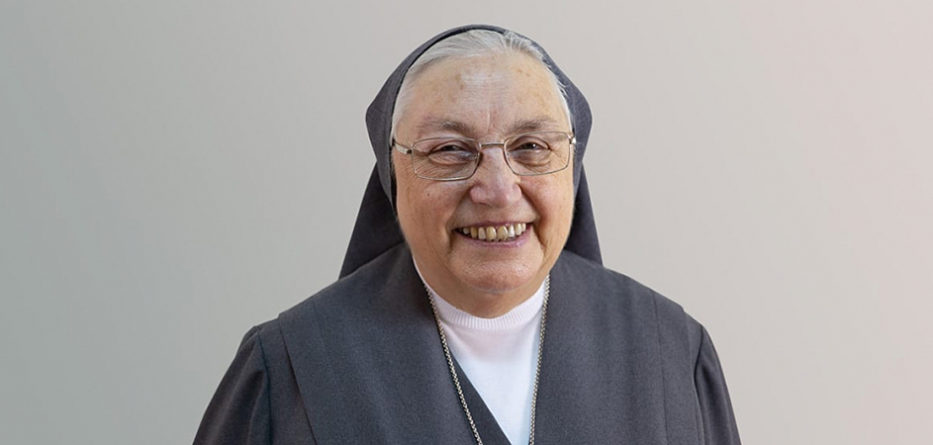Exclusive interview with Salesian Sister Yvonne Reungoat, one of the three women Pope Francis has appointed to the Vatican office that helps him select the world’s bishops
Salesian Sister Yvonne Reungout believes Pope Francis’ historic decision to make her and two other women members of the Dicastery of Bishops – a position previously reserved mostly to cardinals – will help encourage a greater feminine presence at all levels of the Catholic Church.
The 77-year-old French sister served two terms (2014-2020) as the first-ever non-Italian Mother General of her Daughters of Mary Help of Christians religious congregation.
She has been head of the Union of Women Major Superiors in Italy (USMI) since 2018. And in 2019 she was among the first group of women ever to be appointed members of the Dicastery for Institutes of Consecrated Life and Societies of Apostolic Life.
She spoke to La Croix’s permanent Rome correspondent Loup Besmond de Senneville about her new assignment as a member of the Vatican office that helps the pope select bishops.
La Croix: How did you react when you learned that you were becoming a member of the Dicastery for Bishops?
Yvonne Reungoat: I must tell you that I still find it hard to believe that it is true. No one warned me, and I found out when I received a message of congratulations.
That being said, I feel pride and gratitude to Francis. I see this appointment as a sign of confidence and encouragement.
I don’t know the exact details of this mission, but I will fulfill it to the best of my ability.
How do you see this mission?
I am among the first women ever to be appointed to this dicastery. The intersection of views and experiences, and the complementarity of points of view between men and women, seem to me to be interesting in the work of appointing bishops.
The challenges of each diocese or local community must be taken into account and, for that, a woman will perhaps have a more concrete or realistic approach.
The female and male approaches in the discernment that leads to the choice of a bishop are no doubt different.
I don’t want to absolutize the differences, but there are undoubtedly emphases that can vary between a woman’s and a man’s view. It is certain that additional points of view can only be beneficial.
This implies a mutual openness, an attitude of going beyond one’s own opinions and opening up to others. It seems to me that in the process of choosing a bishop this can be an important attitude.
Do you think that your appointment is a sign of encouragement for women to have more responsibilities in the Church?
It is certainly a strong sign. Being given responsibilities is stimulating.
On the one hand, I believe it’s important to give women their place in the Church. And on the other hand, that they dare to take it – that we are not affected by a kind of inferiority complex, as can sometimes happen in the Church.
Many women religious who live in Rome, especially those working in their community’s generalate, want to remain apart from the Vatican. Can this change?
It is true that the nuns tend to do this painstaking work, very discreetly, sometimes too much. And this goes far beyond Rome.
In the field, they are involved in remote, difficult, poor places, but they never want to put themselves forward.
Yet, this would be useful, not to show off, but to stimulate creativity, share ideas, and give birth to other initiatives.
Religious life can also be a support and an encouragement in society.
Reproduced with permission from La Croix International.








